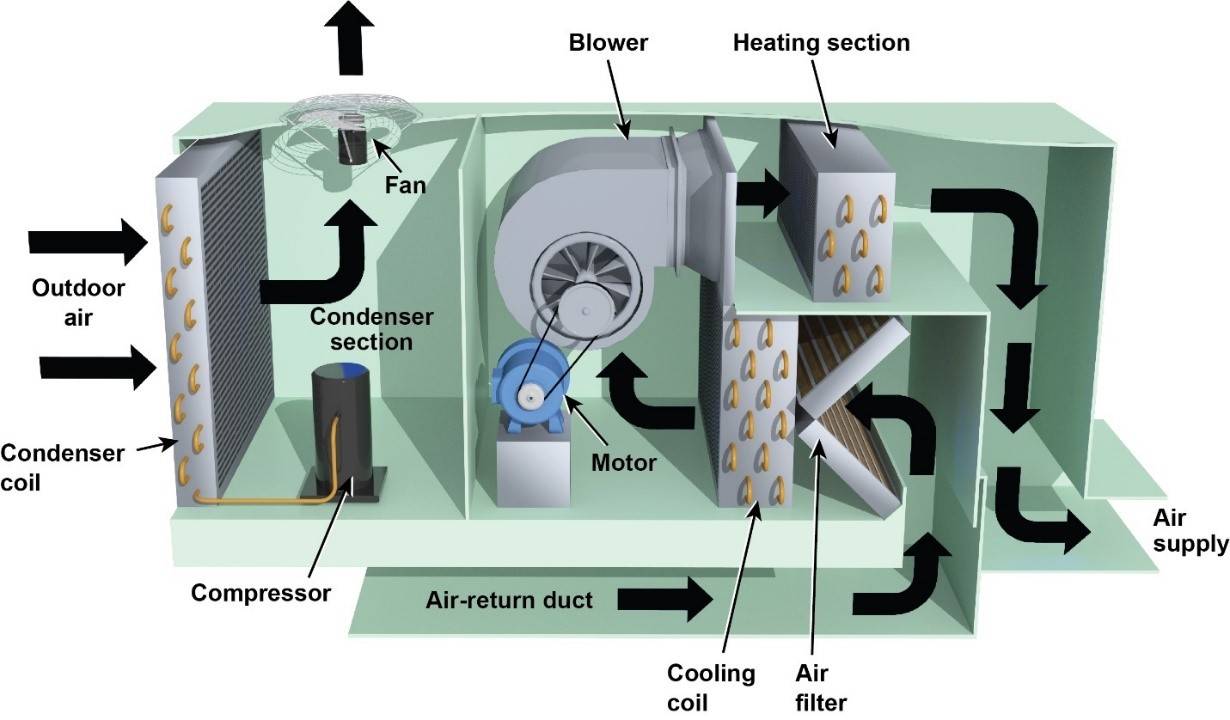Residential Emergency AC Service for Rapid and Trusted Cooling Repairs
Residential Emergency AC Service for Rapid and Trusted Cooling Repairs
Blog Article
Just How A/c Equipment Revolutionize Indoor Environments for Year-Round Comfort
The arrival of air conditioning systems has undoubtedly changed the means we experience interior environments, using extraordinary control over temperature and convenience throughout the year. These systems go beyond plain temperature changes; they improve indoor air top quality and add considerably to energy efficiency.
Temperature Level Control and Versatility
When it comes to achieving year-round comfort, the relevance of temperature level control and flexibility in air conditioning systems can not be overemphasized. Modern air conditioning systems supply innovative technologies such as programmable thermostats and variable rate compressors, which permit users to maintain preferred temperature levels with exceptional efficiency.
Adaptability is one more important component of contemporary cooling systems. With attributes like zoning abilities, users can customize temperature settings in different areas of a structure, satisfying individual choices and usage patterns. This level of control makes certain ideal comfort in every room while lessening power waste. Furthermore, some systems integrate smart innovation, enabling remote accessibility and monitoring through smart phones. This advancement allows users to change setups on-the-go, supplying unequaled convenience and flexibility.
In industrial areas, this adaptability is especially helpful, as it allows services to create customized atmospheres that improve performance and customer contentment. Eventually, the precision and flexibility of modern air conditioning systems play a crucial function in delivering effective, year-round interior comfort.
Enhancing Indoor Air High Quality
In enhancement to temperature level control, boosting interior air high quality is an important element of modern-day air conditioning systems. Including high-efficiency particulate air (HEPA) filters, modern air conditioners can capture tiny particles, such as smoke, dust, and plant pollen, which add to respiratory concerns and allergies.
Additionally, progressed cooling systems commonly consist of attributes such as moisture control, which is pivotal in stopping mold and mildew development and preserving optimum wetness degrees (HVAC Contractor). Too much humidity can bring about pain, advertise microbial development, and aggravate particular health conditions. By regulating humidity, air conditioning system assist reduce these threats, additionally improving interior air high quality
Furthermore, some systems incorporate air cleansers and ionizers, employing technologies that counteract pollutants and shut off airborne pathogens. This comprehensive approach to air quality administration makes sure a healthier interior setting, decreasing the risk of disease and enhancing general wellness. As a result, the focus on air quality enhancement emphasizes the advancing duty of a/c systems beyond simple temperature level law.
Energy Performance Innovations
Modern air conditioning systems have undergone substantial developments in power effectiveness, adding to both price financial savings and environmental sustainability. The adoption of high-efficiency compressors, variable rate motors, and progressed refrigerants are crucial technologies that have actually changed just how these systems operate.
Smart thermostats have also played a vital function in boosting power effectiveness. These devices discover customer preferences and adapt cooling down schedules as necessary, guaranteeing that air conditioning systems operate just when essential. Combination with wise home technologies permits remote and tracking, further stopping power wastage.
These refrigerants are not just better for the environment however also boost system performance, lining up with worldwide efforts to minimize carbon footprints. Advancements in warm exchanger innovation have actually made it possible for more effective warm transfer, improving general system efficiency.
Impact on Health and Wellness
The influence of air conditioning systems on wellness and well-being is complex, impacting numerous elements of everyday life. Largely, these systems provide alleviation from severe temperature levels, which is vital for prone populaces such as the elderly and people with certain health and wellness conditions. By keeping a steady indoor climate, a/c decreases the danger of heat-related anonymous illnesses, including warm exhaustion and heatstroke, thus securing owners' wellness.

Nevertheless, it is important to preserve a/c systems on a regular basis to guarantee their optimum functionality and to prevent prospective health and wellness dangers related to inadequately maintained units, such as the proliferation of germs. Eventually, when effectively handled, cooling systems play a pivotal duty in enhancing comfort, promoting health, and sustaining a healthier living atmosphere throughout the year.
Assimilation With Smart Modern Technology
Smart technology has reinvented the means a/c systems operate, providing boosted performance, convenience, and control. Modern a/c units currently integrate seamlessly with wise home ecosystems, enabling customers to handle their indoor environment remotely by means of smartphones or voice-controlled devices. This connectivity allows real-time surveillance and adjustments, making certain that power usage is enhanced and comfort is kept without the need for continuous manual intervention.
The assimilation with smart modern technology also helps with the use of innovative scheduling functions, allowing systems to readjust temperatures according to tenancy patterns and preferences. HVAC Contractor. This not only maximizes comfort however also lowers unneeded power use, adding to reduced energy expenses and a lowered carbon footprint. In addition, smart sensors give useful information on air high quality and system performance, signaling individuals to prospective issues prior to they intensify into expensive fixings
Moreover, compatibility with wise home assistants such as Amazon Alexa or Google Assistant improves user experience by offering hands-free control and the ability to develop custom automation regimens. As clever modern technology remains to progress, it will most certainly bring additional advancements to air conditioning systems, guaranteeing they stay at the leading edge of offering ideal indoor environments year-round.
Final Thought

In enhancement to temperature level control, improving indoor air top quality is a critical aspect of modern-day air conditioning systems. Including high-efficiency particle air (HEPA) filters, modern-day air conditioners can catch microscopic bits, such as dust, smoke, and pollen, which contribute to respiratory system problems and allergic reactions. By managing moisture, air conditioners help minimize these dangers, even more boosting indoor air quality.
The emphasis on air high quality enhancement underscores the progressing role of air conditioning systems beyond mere temperature regulation.
Furthermore, air conditioning systems contribute to enhanced indoor air top quality by filtering out contaminants, irritants, and particulate issue.
Report this page